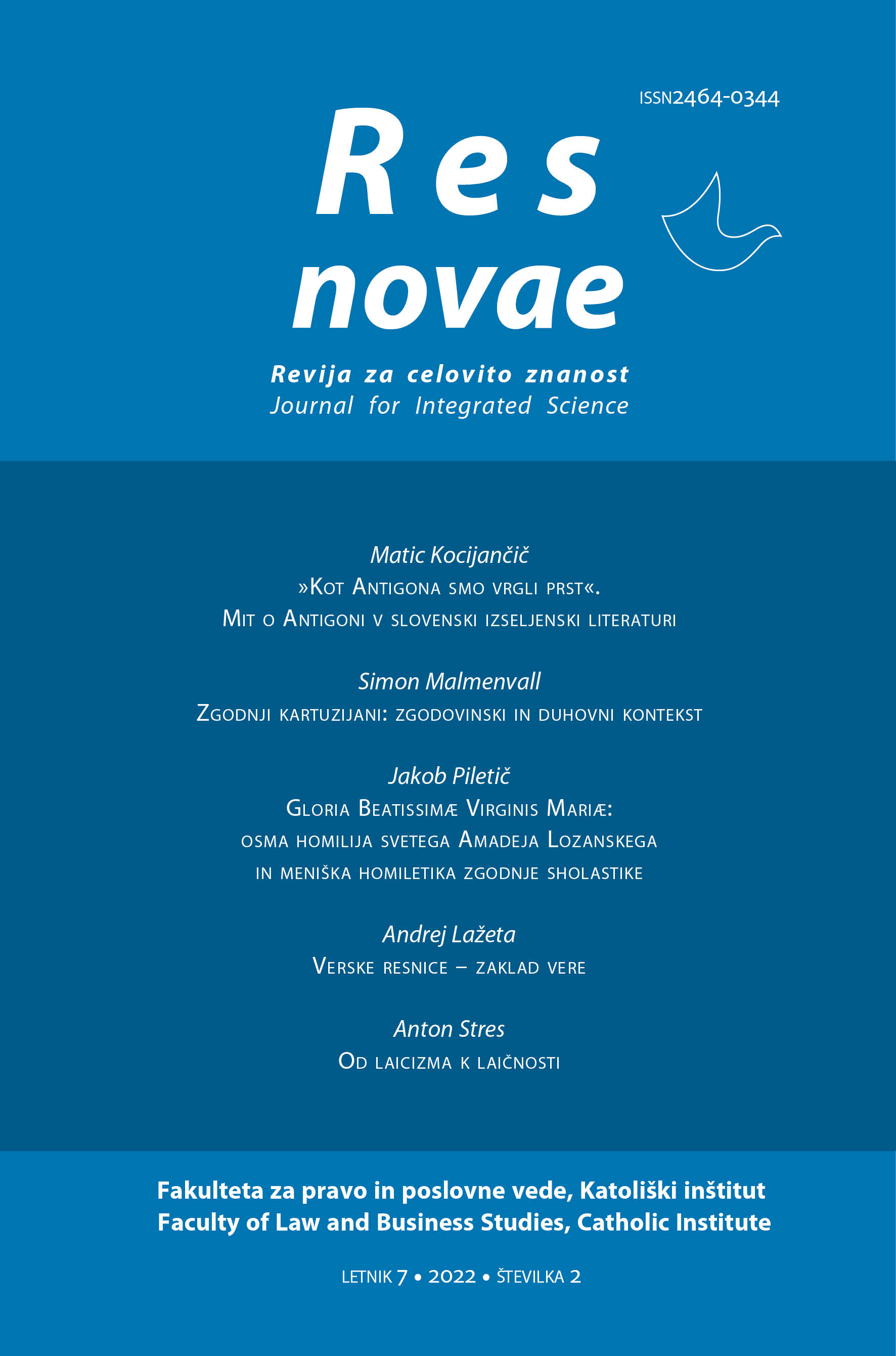From Laicism to Laicity
Anton Stres
From Laicism to Laicity
DOI: https://doi.org/10.62983/rn2865.22b.5
Key words: freedom of religion, laicism, secularism, separation of church and state
Abstract:
Laicism is an anti-religious liberal ideology of the nineteenth century that developed in France and has proven to be the opposite of a true secular, i. e pluralistic, liberal, and ideologically impartial state order. Its main goal is the expulsion of religion from the public sphere into privacy, which is contrary to the integral notion of religious freedom also including the freedom of public expression of religion. French laicity has avoided secularist extremes, but laicism has taken root in totalitarian communism and lives on in neo-Marxist ideologies. During the process of democratization in Slovenia, the political culture has not completely outgrown Marxist laicism, which is most evident in the field of education. Here, laicism has found a new excuse in giving absolute priority to negative religious freedom (the right to be unfaithful) over the positive right to express one’s own faith, but from a theoretical point of view this is also controversial as confirmed by the practice of the vast majority of democratic countries.
PDF



